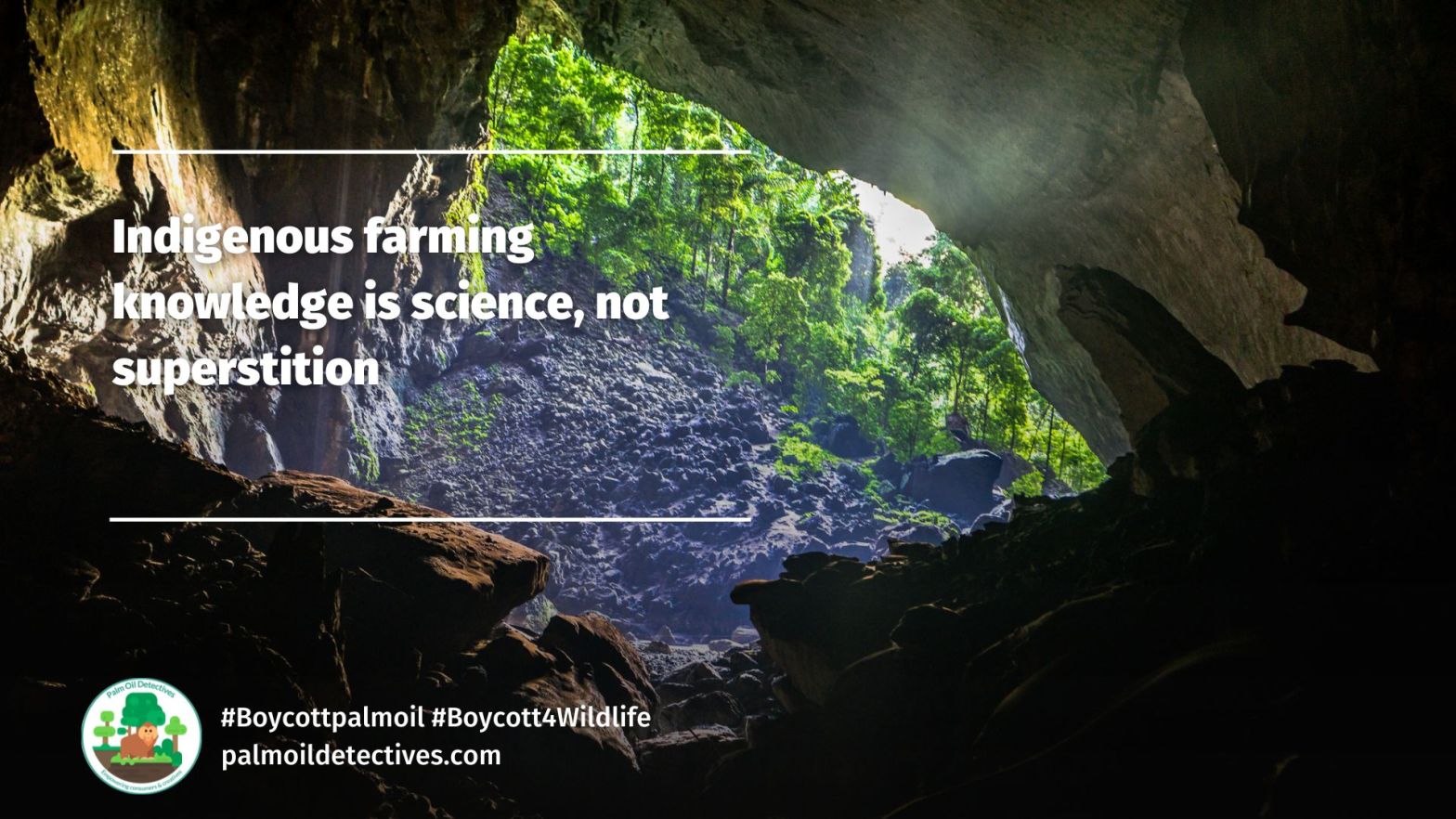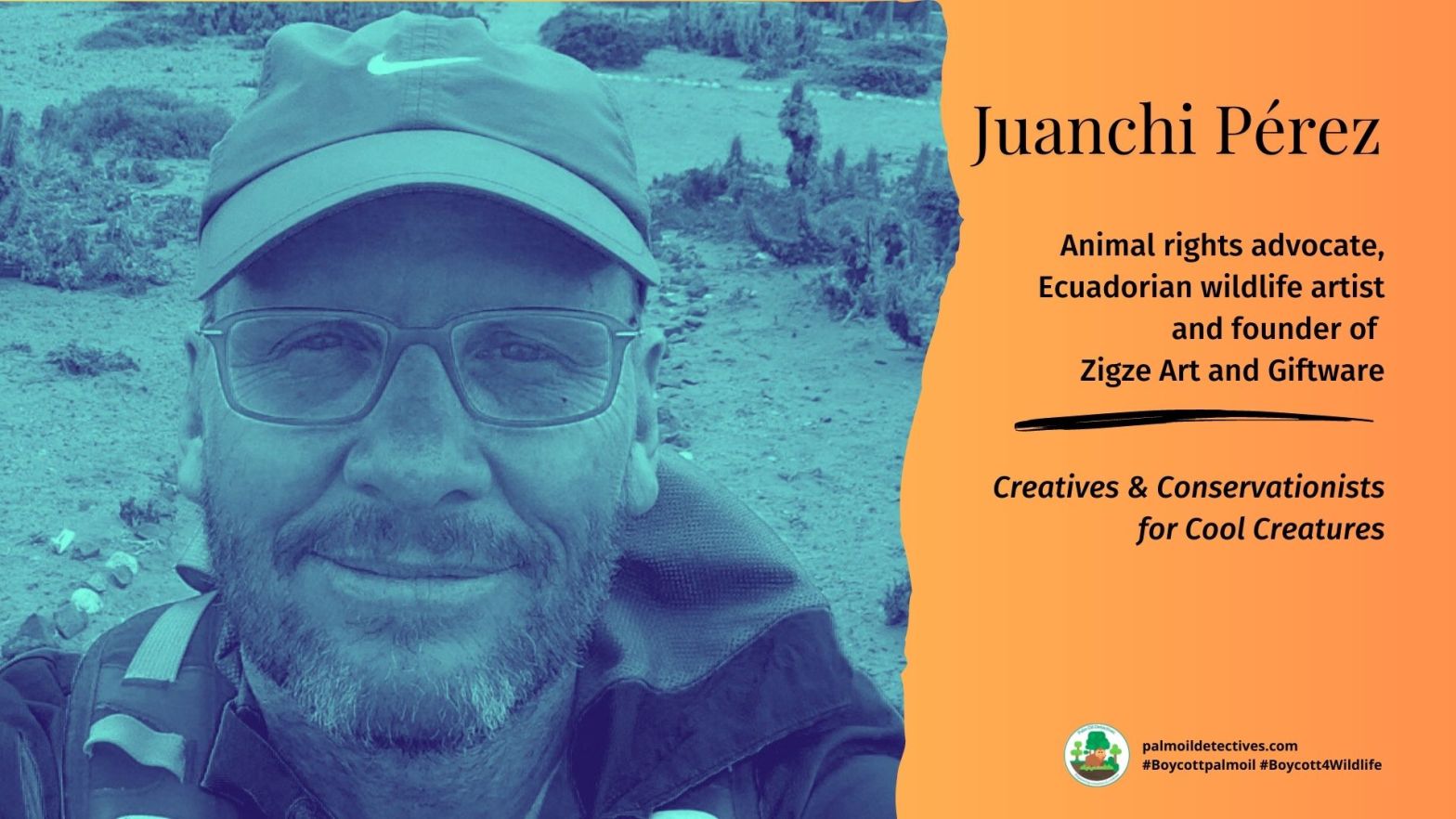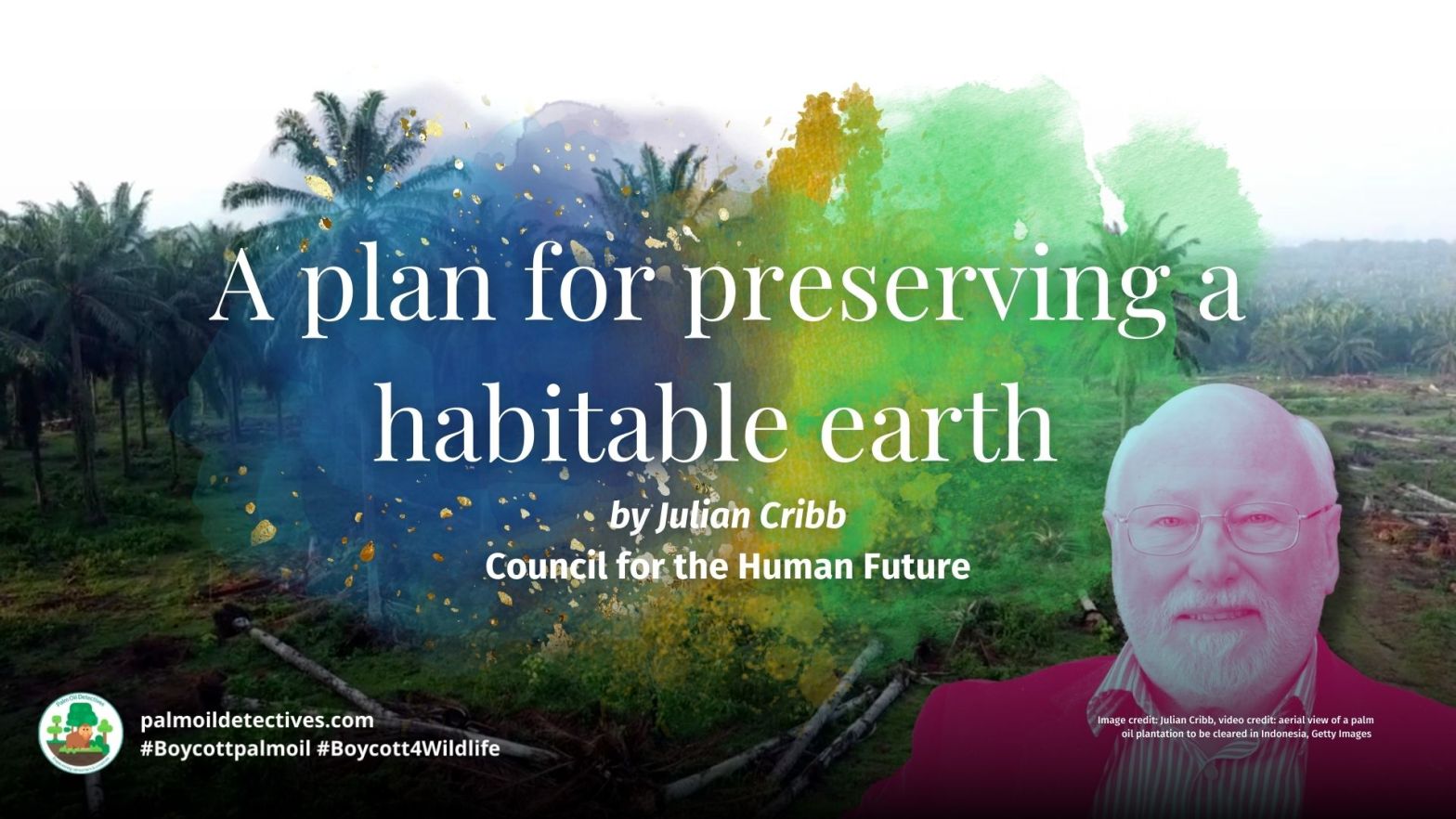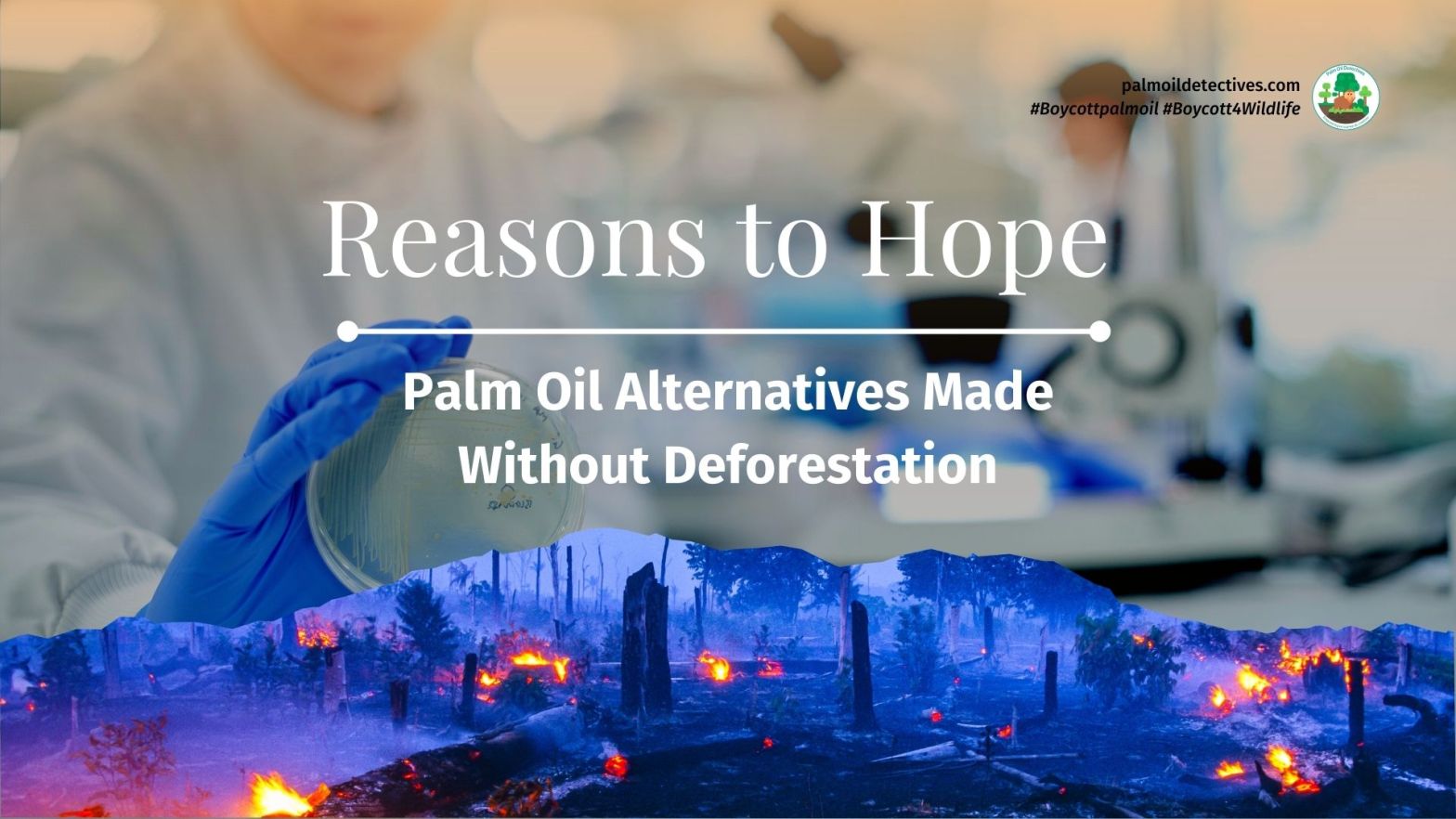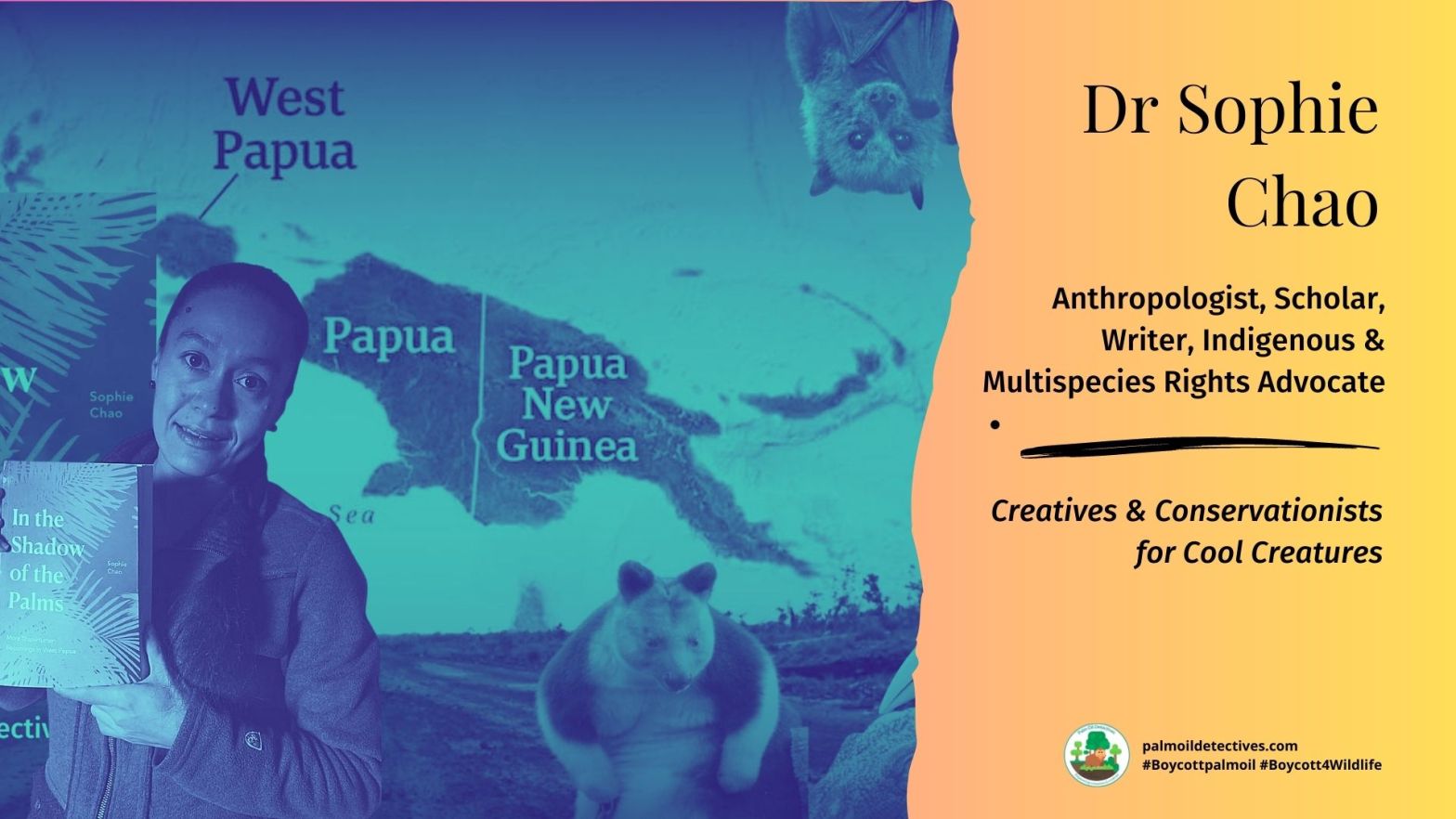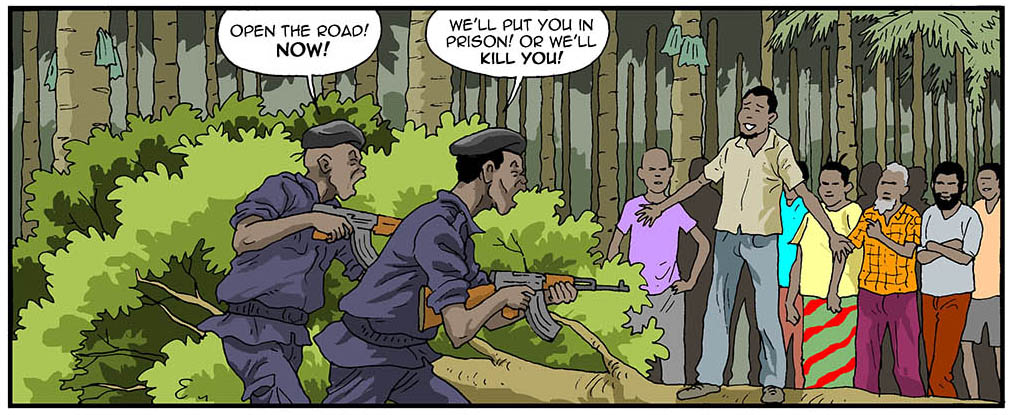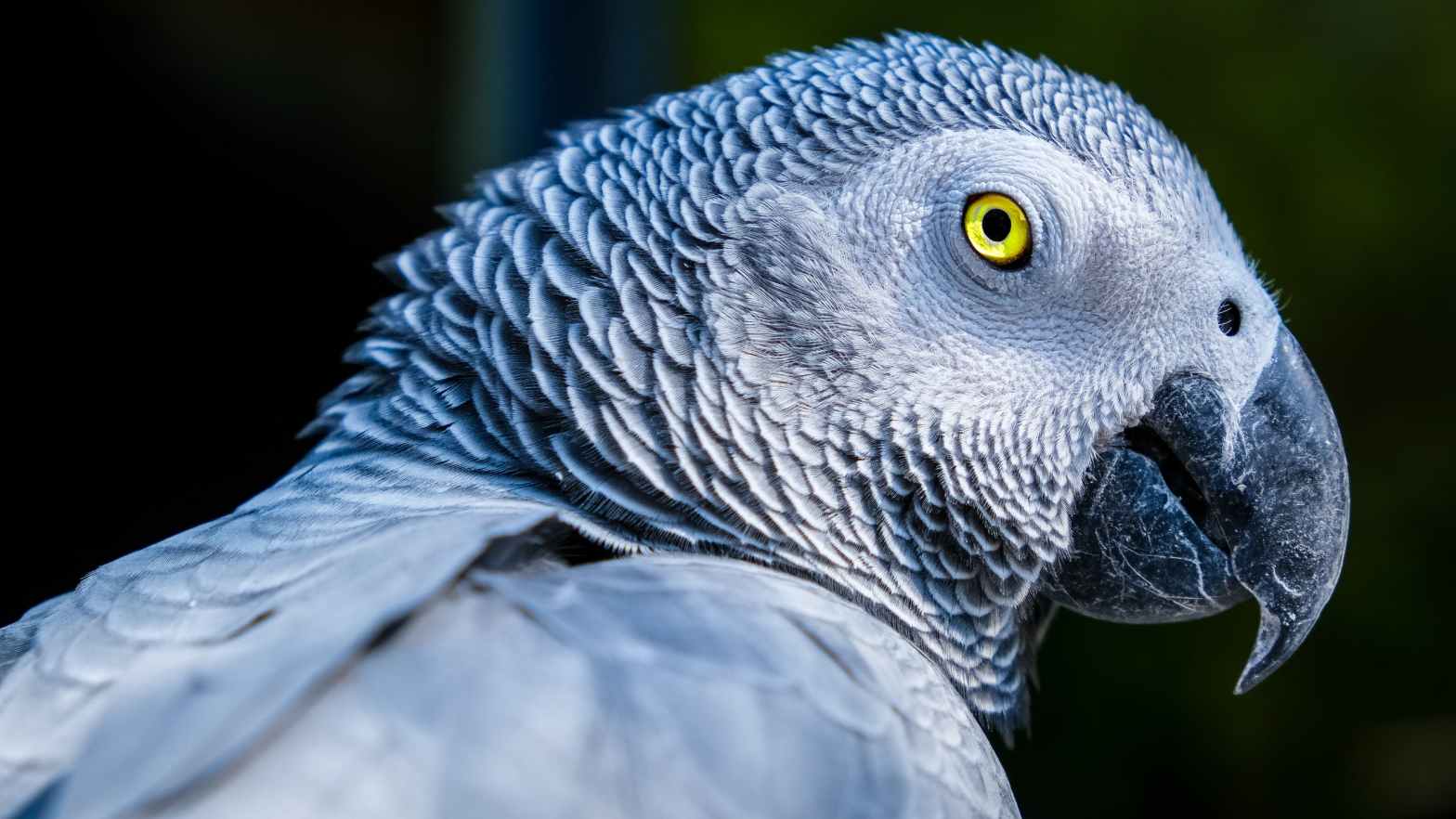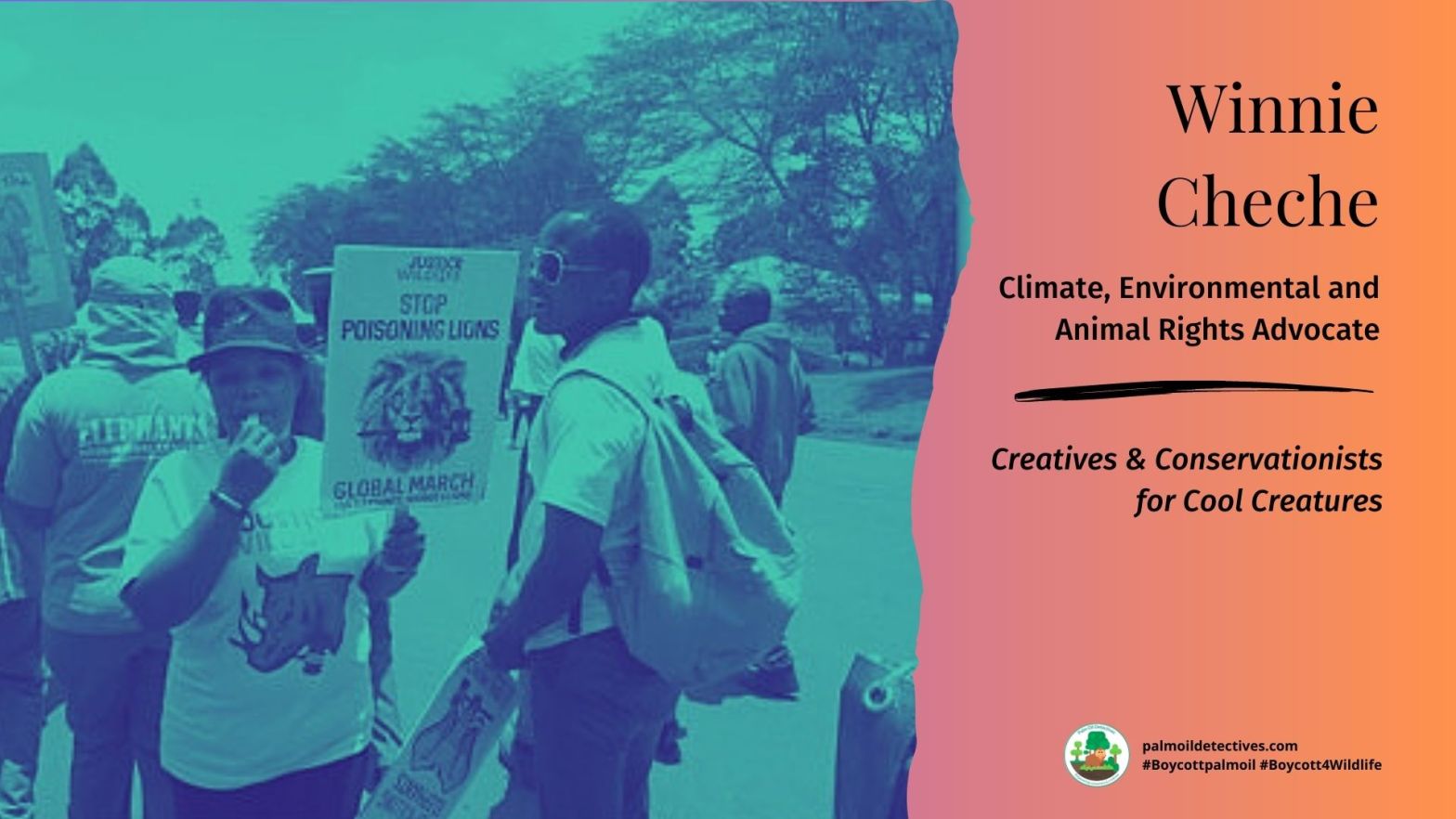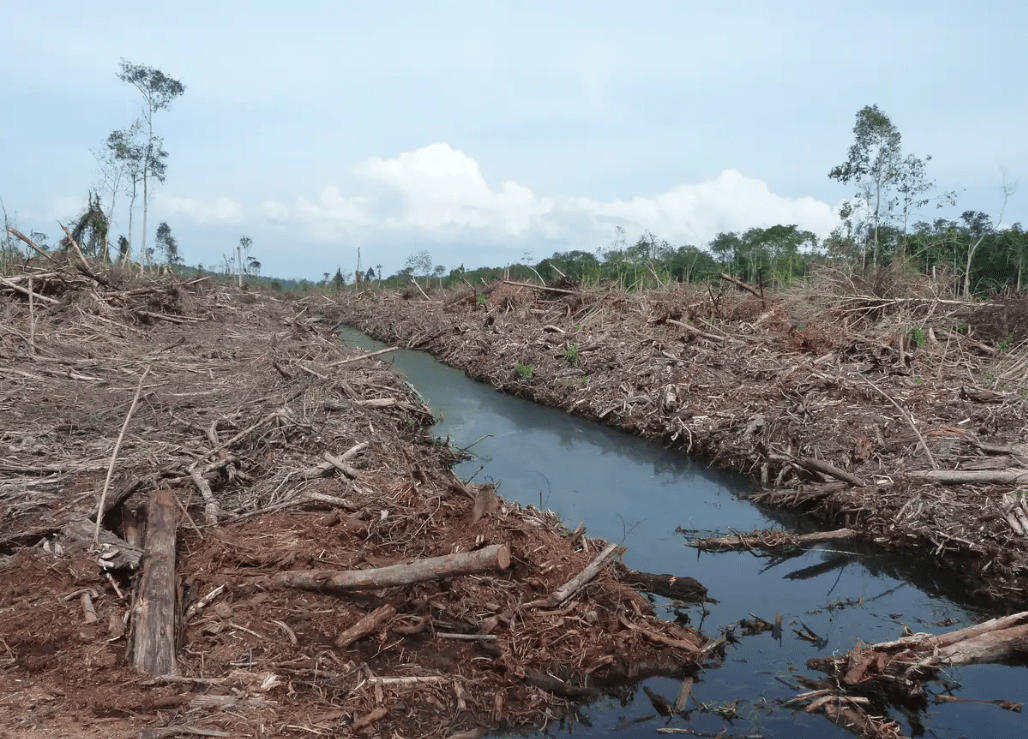What does it mean when you encounter snakes slithering along paths or find a bird nest with eggs? For Indigenous peoples in Malaysia, these are tell-tale signs passed down by their ancestors discouraging them from using the land. Instead, they must protect the area from unscrupulous developments.
Category Archives: Hopeful Stories from Courageous People
Wildlife Artist and Animal Rights Advocate Juanchi Pérez in His Own Words
Juanchi Pérez is a talented and well-established designer, illustrator and artist from Ecuador who captures the soulful presence of rare rainforest animals near his home.
He is passionate about sharing the magnificent animals and plants of his bountiful homeland with the world. Together with his beautiful wife and daughter, he founded art and giftware brand Zigze several years ago.
Op-Ed: A plan for preserving a habitable earth by Julian Cribb
Renowned and prolific science communicator and author Julian Cribb writes this op-ed piece for Palm Oil Detectives. He addresses the world’s most pressing needs for survival as we descend into the pointy end of the Anthropocene era.
Julian outlines a dozen direct and actionable solutions for preserving a healthy and habitable earth. These are taken from his interviews with the world’s brightest minds. For a more in-depth analysis, be sure to grab a copy of his most recent book, published this year – ‘How to Fix a Broken Planet’
Palm oil substitutes can offer beleaguered rainforests a fighting chance
Palm oil is a versatile substance used in a wide range of products from foods to cosmetics. The trouble with it is that the cultivation of oil palm trees has caused massive enviromental harm, especially in Malaysia and Indonesia, which together account for 85% of palm oil production in the world.
But scientists from Nanyang Technological University in Singapore and the University of Malaya in Malaysia say they have an answer as to how we can wean ourselves off palm oil.
Mel Lumby: The beautiful begonias of Borneo and beyond deserve our love and protection
Begonias, along with orangutans and many other rainforest inhabitants are in danger now. Will these precious jewels of the jungle be located by scientists, described, eventually named and shared, so that people can love and marvel at their incredible beauty? Or will the bulldozer get there first, destroying where they live, making way to plant oil palm plantations for cheap palm oil? Retired horticulturalist and animal advocate Mel Lumby will keep fighting for as long as she lives.
Reasons to Hope: Palm Oil Alternatives Made Without Deforestation
Environmental organisation Milieudefensie have calculated that every second, around 169 trees are cut down in tropical rainforests. So the race is on to find a real solution to stop this! Right now, several new technologies are furiously competing with each other to create a healthier, lab-created alternatives to palm oil. Palm oil has been historically grown inContinue reading “Reasons to Hope: Palm Oil Alternatives Made Without Deforestation”
Anthropologist and author of ‘In the Shadow of the Palms’ Dr Sophie Chao: In Her Own Words
Dr Sophie Chao is an environmental anthropologist and environmental humanities scholar interested in the intersections of capitalism, ecology, Indigeneity, health, and justice in the Pacific.
Palm Oil Detectives is honoured to interview to Dr Sophie Chao about her research into the impacts of palm oil on the daily lives of Marind people and other sentient beings in West Papua.
I wrote In the Shadow of the Palms because I wanted the world to understand how deforestation and industrial oil palm expansion are undermining Indigenous ways of being in West Papua.
Indigenous and local communities key to successful nature conservation
Indigenous and local communities are key to successful nature conservation and for protecting animals from extinction. Story via Eureka Alert and the University of East Anglia. Indigenous Peoples and local communities provide the best long-term outcomes for conservation, according to new research from the University of East Anglia (UEA) and partners in France. Lead author,Continue reading “Indigenous and local communities key to successful nature conservation”
The people versus Feronia: Fighting palm oil agrocolonialism in the Congo
This incredible comic was created by Didier Kassai with research by Judith Verweijen and Dieudonne Botoko Kendewa of the University of Sussex and the University of Sheffield. The comic was originally posted by Cartoon Movement. The comic is based on field research conducted around the Feronia palm oil plantation in Tshopo province in north-east DR Congo.Continue reading “The people versus Feronia: Fighting palm oil agrocolonialism in the Congo”
How do we stop the world’s ecosystems from going into a death spiral? A #SteadyState Economy
What is a Steady State Economy? A Steady State Economy is a mildly fluctuating economy that does not exceed ecological and planetary limits. A Steady State Economy is not an alternative economic ideology that is centred on endless GDP growth. It is neither capitalism nor communism. Economic growth, with all of its downsides, is clearlyContinue reading “How do we stop the world’s ecosystems from going into a death spiral? A #SteadyState Economy”
Barbara Crane Navarro: Artist & Activist In Her Own Words
Barbara Crane Navarro is a French-American artist, writer, Indigenous and animal activist who lives near Paris. From 1968 to 1973 she studied at Rhode Island School of Design, then she went on to study at the San Francisco Art Institute in San Francisco, California, for a BFA.
Her work over many decades has been informed and inspired by time spent with indigenous communities. She took various study trips devoted to the exploration of techniques and natural pigments of different indigenous communities including the Dogon of Mali, West Africa, and the Yanomami communities in Venezuela and Brazil. Learn more about why she supports the #Boycott4Wildlife
What would happen if we lost all wildlife?
Have you ever thought about what would happen if we lost all our wildlife? Thoughts on what our planet will turn into, always make my stomach hurt. Can you imagine having no wildlife anywhere? The scary rate that extinction is taking away our wildlife The rate is crazily high and we seem not to really understand howContinue reading “What would happen if we lost all wildlife?”
How does COVID-19 affect Wildlife Conservation?
How does COVID 19 affect Wildlife Conservation? This pandemic has affected several continents, and everyone seems to be at its mercies. It’s sad to see people lose lives, property, jobs, among others. It’s crippling the economy and results to be a pandemic pushing us to a very difficult corner. No Money = No Tourism ApartContinue reading “How does COVID-19 affect Wildlife Conservation?”
On Overcoming Activism Exhaustion and Burn-Out
It’s Okay Not To Be Okay, But Not Okay to Remain That Way We all go through stuff that makes us feel no okay, maybe a phase/season/period/stage, etc. It’s okay for this to happen, and our feelings are totally valid. There’s nothing wrong with that. Just allow yourself to outgrow the situations. Remember, you areContinue reading “On Overcoming Activism Exhaustion and Burn-Out”
Where There’s Smoke There’s Fire: Let’s Sort the Plastic Menace
Smoke is a clear sign of something brewing up. The decision taken afterward determines the outcomes. If ignored, the fire may destroy everything. But if we bother to check out, we may save the day. It has been more than a month now since we heard the rumors of Kenya being used as a hubContinue reading “Where There’s Smoke There’s Fire: Let’s Sort the Plastic Menace”
Every Living Organism Has a Way of Communicating
Every living organism has a way of communicating. We may not be able to understand each other’s language. But its there and communication get passed from one organism to another. How do forests speak to us? If you have ever been into the woods and feel different ways nature talks to us. From the windContinue reading “Every Living Organism Has a Way of Communicating”
Winnie Cheche: Wildlife and Environmental Advocate in Her Own Words
I love wildlife and I am ready to do whatever I can to ensure that future generation get to see animals. Poaching and conservation area encroachment continue to be a threat to wildlife existence, and something needed to be done. Knowledge is power and a good start to ensure things change. Extinction is already taking them away, and humans contribute to that. Helping them know how they play that part will help stop the reaction. If you want to get involved in conservation, look at the many ways that humans are driven crazy out of our greed and selfishness. Then work to find fixes and solutions for that. We can allow our humanity and compassion to guide us towards advocating for the right thing for animals and for the natural world.
Dangers of wildlife mass death in this era
For a while now, we have been labeled as a generation promoting mass extinction of other species as a result of some negative activities we do for developments. We have occupied and displaced these species, as our population continues to expand. Cheche Winnie The mass death of elephants in the Okavango Delta A few daysContinue reading “Dangers of wildlife mass death in this era”

